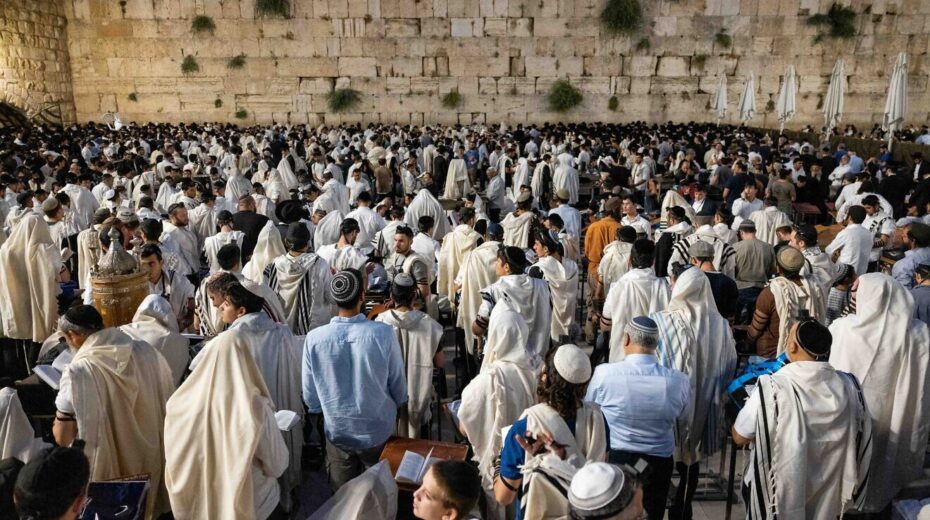One of the most difficult days in the Jewish calendar, it includes five afflictions intended to stir the heart and inspire repentance.
Tisha B’Av
Ten months after October 7th, this evening and tomorrow we commemorate the destruction of the Temple in Jerusalem.
“Fasting during operational activity is prohibited; it is a life-threatening matter,” says the Israeli Military Rabbinate.
On the day of Tisha B’Av, when Jews mourn the destruction of their temples, a symbol of redemption was seen on the Temple Mount.
‘Time for responsibility and restraint’: President Herzog calls for calm and political cooperation amid fierce protests over judicial reforms.
“One of the greater challenges with Tisha B’Av is being able to truly connect to the pain and mourning practices of the day,” says Rabbi Doron Perez.
When we come to the awareness that we are all limbs of a single being, our feelings of resentment, competition and antagonism fade away.
For two millennia the Jews have mourned – on Tisha b’Av and on many other occasions every year – over the destruction of the Temples and the exile of the nation. Christians give very little thought to these calamities, much less weep over them. Why?
Israel in the past suffered from a lack of unity, love, Torah dedication and prayer. We can fix that today
Israel fasts and prays that God keep her and preserve her in this Land



















